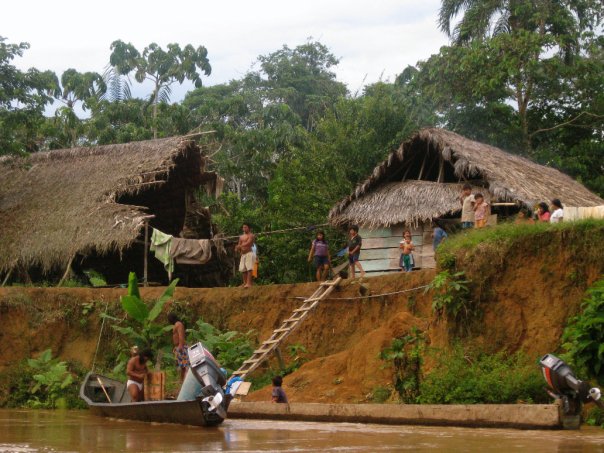When the jungle speaks, we must listen. At the heart of Yasuní, there is more than just a forest; there is a living temple. Here dwell the Waorani, an ancient people who carry the memory of Ecuador long before the conquistadors arrived. They are the last living flame of a culture that has resisted centuries of invasions, the onslaught of the outside world, and who still maintain a profound spiritual connection to the land few can truly understand.
Who Are the Waorani?
The Waorani—meaning “the people” in their plural language—are an indigenous Amazonian group with a unique language, wao tededo, spoken only by them. They live a semi-nomadic lifestyle as hunter-gatherers, deeply intertwined with the jungle that surrounds them. Their history is one of deliberate isolation, protecting their way of life from external threats.
The Waorani Language and Beliefs
The Waorani language, wao tededo, is a linguistic treasure that carries the soul of their culture. The word “Waorani” itself means “the people,” emphasizing community and identity. Their worldview is deeply connected to nature, and their vocabulary reflects this intimate relationship with the environment.
Spiritually, the Waorani believe in a supreme being or god, an abstract and pervasive force that inhabits everything around them—the trees, rivers, animals, and even the air. This force is not personified but understood as the essence of life and creation itself. Their belief system includes notions of transformation, where death is not an end but a return to the forest, continuing the cycle of life.
Through rituals, dreams, and the use of sacred plants, they communicate with the spiritual realm. Their cosmology does not rely on formal religious structures but on an experiential, intimate connection with the invisible forces governing their world.
Spirituality Rooted in the Jungle
The Waorani believe in a sacred energy that inhabits every tree, river, and creature. Although they do not have formal temples or religious leaders, they possess a clear notion of a supreme being: an abstract, immanent creator force present in all things. Death is not an end but a transformation—a return to the forest. Through dreams, visions, and sacred plants, they communicate with this hidden spiritual realm that guides and protects them.
Outsiders and the “Cannibals” Misunderstanding
To the Waorani, outsiders—especially white settlers and mestizos who arrived seeking oil and timber—were called “cannibals.” This was not a literal accusation but a reflection of the violence they brought, killing many tribe members and destroying the forest. Helicopters and planes were known as the “steel bird,” symbols of death and destruction.
Spanish Missionaries: A Tragic Mistake Fueled by Fear
In the 20th century, some Spanish Catholic missionaries attempted to evangelize the Waorani, arriving by helicopter. Mistaken for oil and timber extractors, they were killed in self-defense. This tragic event was the result of trauma and cultural misunderstanding rather than savagery—a fact often silenced or misrepresented.
Protestant Mission and the Myth of Martyrdom (1956)
Decades later, American missionaries like Jim Elliot arrived to convert the Waorani and save their souls. Their deaths during initial contact became legendary. Yet, thanks to women like Rachel Saint and Waorani Dayuma, the mission continued with partial success. Baptism was seen as salvation but also caused deep cultural ruptures.
Yasuní: From Battleground to Sacred Sanctuary
Faced with threats from the oil and timber industries, Yasuní National Park was established in 1979. It protects not only one of the planet’s most biodiverse rainforests but also Waorani territory and other voluntarily isolated groups. Still, tensions between development, conservation, and indigenous self-determination remain.
Waorani: The Last Guardians of Ancient Ecuador
The Waorani continue to live as they did over 500 years ago, independent of the outside world. Their language, myths, and knowledge mirror the Ecuador that existed before conquest. Protecting them is a moral and cultural imperative. Without them, we lose not just a culture but a vital link to our purest humanity.
Listening to the Jungle, Listening to Each Other
When the Waorani called the outsiders “cannibals,” they spoke truthfully: they saw how the modern world devoured their land, rivers, and souls. Today, they remain. As long as they breathe, the story of ancient Ecuador beats in the heart of Yasuní.




Comments